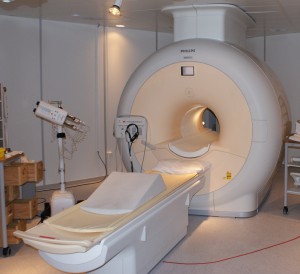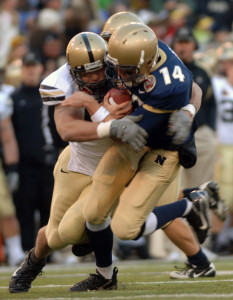Premier Orthopaedics surgeon, Dr. Jonathan Garino, performed back-to-back procedures on a couple who have been married for 54 years! They shared their same-day surgery journey at the MUVE Center with @6ABC. Watch the incredible story below. Read the full ABC6 story...
LATEST BLOGS
What are Non-Surgical Treatment Options for a Herniated Disc
The spine consists of 26 bones called vertebrae and between them are cushion-like pads called “intervertebral discs”. The discs serve as shock absorbers for the vertebrae and help provide stability to the spine. When one of these intervertebral discs loses its normal...
Everything You Need to Know About Plantar Fasciitis
Plantar fasciitis is the most common diagnosis for those experiencing heel pain, with almost 2 million people seeking treatment for this condition each year according to the American Academy of Orthopaedic Surgeons. It involves inflammation of a thick band of tissue...
Dealing with a Concussion

Athletes, especially those playing contact sports, risk suffering a concussion each season that they play. A concussion is a blow to the head that disrupts brain function. Since this type of injury can be serious, it should be addressed as soon as possible.
Immediately following a blow to the head, the athlete should be removed from the game. It’s important to monitor the athlete to determine whether he or she displays any symptoms of a concussion. Young athletes should be evaluated more carefully because their performance takes longer to improve after a concussion.
Common symptoms of a concussion include headache, feeling dazed, vomiting, seizures, amnesia, or loss of consciousness. If you experience any of these symptoms following a blow to the head, it’s crucial to seek medical attention immediately. When being evaluated for a concussion, the physician may order tests, including one or more of the following:
Neurological test: This test assesses motor and sensory skills, the functioning of cranial nerves, hearing and speech, vision, coordination, and balance.
CT scan: This is a computerized X-ray that provides images of the brain and can identify bleeding or swelling.
MRI scan: This imaging study typically is used when patients have experienced symptoms for more than seven days. The concussion should only last about 48 to 72 hours.
ImPACT Neurocognitive Test: This computer-based program, available at Premier Orthopaedics, tests multiple aspects of brain function. The team of certified physicians and athletic trainers at Premier will help diagnose and treat athletes using this test.
No medication has been proven to aid in recovery after concussion, so the main treatment is rest by limiting brain function as much as possible. Physicians suggest patients refrain from watching television and using a computer during this time, and acetaminophen can be used to reduce painful headaches.
There are a few preventive measures athletes can take to reduce the risk of a concussion. An athlete who has experienced one or more concussions has a greater risk of suffering another one.
Fitting Helmet
If you play a sport that uses helmets, make sure yours fits correctly. An improperly fitted helmet doesn’t protect the head the way it should.
If your sport doesn’t use helmets, see what you can do to protect your head. Because concussions are serious, more sports are allowing players to wear some kind of head protection. For instance, the use of headgear is becoming more popular among soccer players who have sustained a head injury.
Avoid Using Your Head
Don’t use your head as part of the game. But if you do commonly use your head when playing a sport, such as in soccer, train yourself to avoid this as much as possible and instead focus on trapping the ball with your chest. Football players should utilize proper tackling methods and avoid using the head as a weapon, focusing instead on hitting with the shoulders.
Strengthen Neck Muscles
Strong neck muscles can absorb some of the impact to the head, reducing the force that affects the brain. One simple exercise to strengthen the neck muscles is lying flat on the ground with your head about an inch off the ground and twisting your neck from side to side at least 15 times.
Concussions are serious injuries that can ultimately cause severe damage. It’s critical to your health to take preventive measures to avoid suffering one. If you do suffer a blow to the head, get examined right away.


